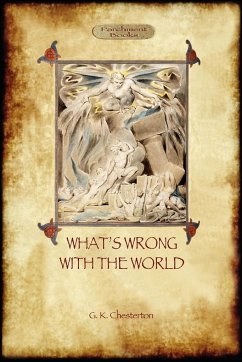
Anna of the Five Towns (Aziloth Books)
Versandkostenfrei!
Versandfertig in 1-2 Wochen
13,99 €
inkl. MwSt.

PAYBACK Punkte
7 °P sammeln!
Arnold Bennett was born and grew up in Hanley, deep in the heart of the ‘Potteries’ (his ‘Five Towns’), a land scarred and its people debilitated by industrial pollution and greed of gain. He left the area in 1898, aged 21, to work as a solicitor’s clerk in London, writing in his spare time for magazines such as Tit-Bits. Bennett was a follower of Guy de Maupassant, believing that interesting and enlightening books could be written around the lives of ordinary people, a view vindicated in 1902, when he began publishing a series of books on life in the Potteries to instant critical ac...
Arnold Bennett was born and grew up in Hanley, deep in the heart of the ‘Potteries’ (his ‘Five Towns’), a land scarred and its people debilitated by industrial pollution and greed of gain. He left the area in 1898, aged 21, to work as a solicitor’s clerk in London, writing in his spare time for magazines such as Tit-Bits. Bennett was a follower of Guy de Maupassant, believing that interesting and enlightening books could be written around the lives of ordinary people, a view vindicated in 1902, when he began publishing a series of books on life in the Potteries to instant critical acclaim. Anna of the Five Towns is the first of these novels, and tells the tale of Anna Tellwright, who lives a miserable existence under the stern hand of her miserly father Ephraim. Bennett’s prose evokes the bleak environment of the potteries and the oppressive influence of Wesleyan Methodism as Anna in turn inherits wealth, attracts the attention of the handsome and well-respected Henry Mynors and discovers, tragically too late, that her true feelings lie elsewhere. Bennett’s genius holds up a mirror to the repressed and materially-obsessed values of Victorian Society "all the pretences by which society contrives to tolerate itself" and which shepherd a reluctant Anna towards conformity. Although scorned by the privileged, self-absorbed and self-regarding Bloomsbury Group, Arnold Bennett’s work has nevertheless stood the test of time, with noted critic John Carey declaring Bennett his ‘hero’, and praising his works as "a systematic dismemberment of the intellectuals' case against the masses".














